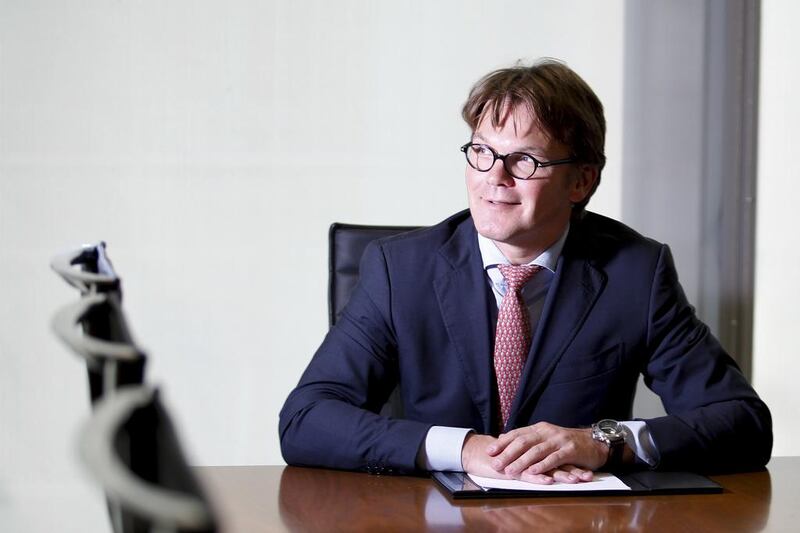JP Morgan Chase is bolstering its business in Saudi Arabia, adding new services and hiring staff in anticipation of increased foreign investment flows into local equities, as the kingdom vies for emerging market status amid efforts to radically transform its economy.
After creating its equities business in the country in 2017, JP Morgan, the largest US lender by assets, is setting up a custodian business that will commence operations next quarter, said Sjoerd Leenart, the bank's regional chief and global head of corporate banking.
JP Morgan's Saudi office, which currently employs 70 people, is getting the most attention among the regional markets in terms of JP Morgan's expansion plans, he said.
"There's a very interesting dynamic going on in Saudi Arabia," Mr Leenart told The National in Dubai. "There is a fundamental economic change. For its size, its GDP and the social and economic transformation going on, it builds a business case for banks to expand. What's really exciting about Saudi Arabia is that the economic change is coinciding with social change and when you go there, you really feel it."
_______________
Read More:
EFG-Hermes upbeat on regional listings, plans Saudi expansion
Saudi Arabia's CMA amends rules to make foreign access to local stock market easier
_______________
The bank’s custodian business, which involves holding securities on behalf of their owners, will cater to international investors seeking exposure to Saudi Arabian equities as well as local institutional clients.
Saudi Arabia, which has embarked on an ambitious agenda to reduce its dependence on hydrocarbon revenues, has garnered significant attention from international banks. A particular draw is the upcoming sale of shares in Saudi Aramco, the world’s largest oil company, whose value is estimated at between $1.5 to 2 trillion.
The anticipated IPO of a 5 per cent stake in Aramco could raise up to $100bn, making it the world’s largest share sale to date.
Saudi Arabia is the largest Arab economy and its Tadawul index is the biggest by market capitalisation in the Arabian Gulf. The country is vying to be included in MSCI Emerging Market Index, a move that is forecast to attract billions of dollars into the kingdom's equities.
MSCI, whose emerging market gauge is tracked by fund managers with $1.7 trillion in assets, will announce a decision on whether to upgrade Saudi stocks to EM status in June.
The much-anticipated upgrade follows a series of market reforms initiated by Riyadh, designed to attract international institutions, including the easing of foreign ownership restrictions for local equities, the reduction of settlement cycles and the introduction of short-selling.
"The changes that Saudi is doing to its equity capital market, both in CMA regulation and Tadawul are very impressive and aiming to give unfettered access to foreign investors," Mr Leenart said. "That's why we built a custody business that can service our international clients that want to invest there."
JP Morgan is not the only bank beefing up its presence in Saudi Arabia. Financial institutions, such as Egypt’s EFG Hermes, are also increasing their workforce in anticipation of greater deal flows, including mergers and acquisitions and a flurry of IPOs as the kingdom privatises some of the state-controlled assets.
Private bankers are also zeroing in on the country, with wealth managers from banks including UBS and Credit Suisse hiring more relationship managers to service clients in the kingdom.
Mr Leenart said the region’s increasing economic visibility on the international stage is likely to boost business for JP Morgan as a whole, especially in terms of proceeds from equity market transactions and mergers and acquisitions, two areas of the business that had lagged debt capital markets in recent years when sovereigns in the region sold record amount of debt to plug their budget deficits.
"Investors now have visibility on the baseline of this region in a new paradigm of oil at $65 [a barrel]," Mr Leenart said.





